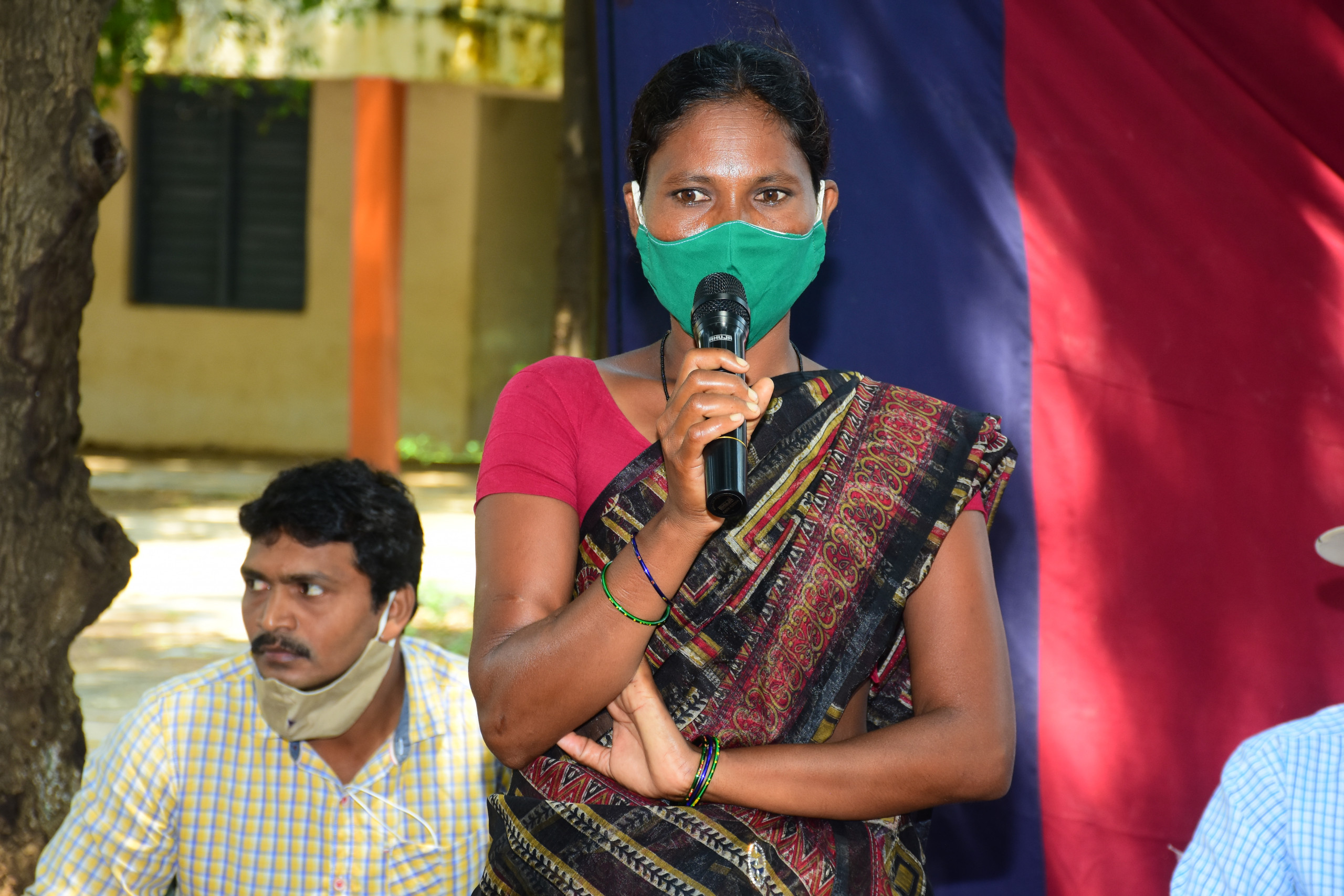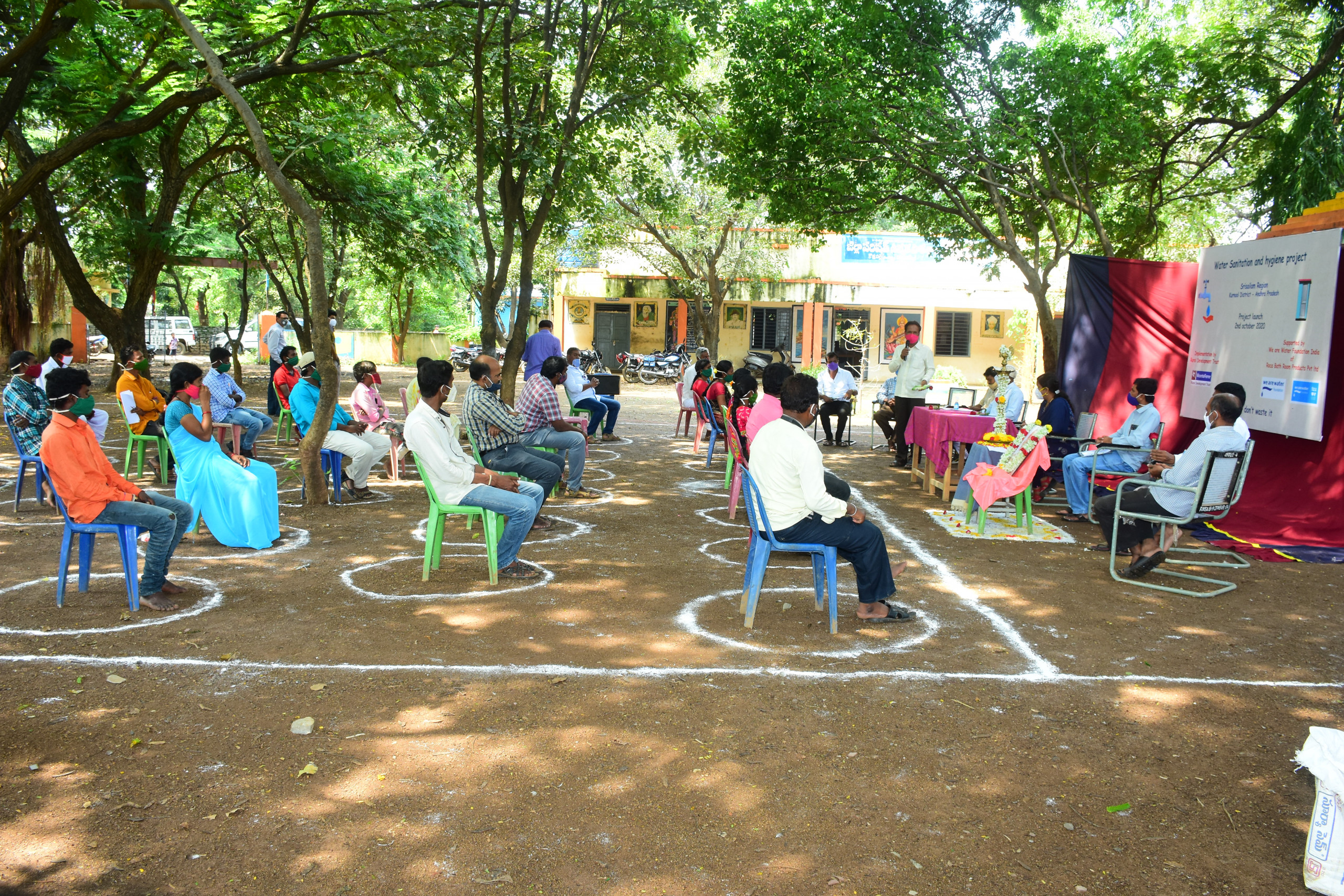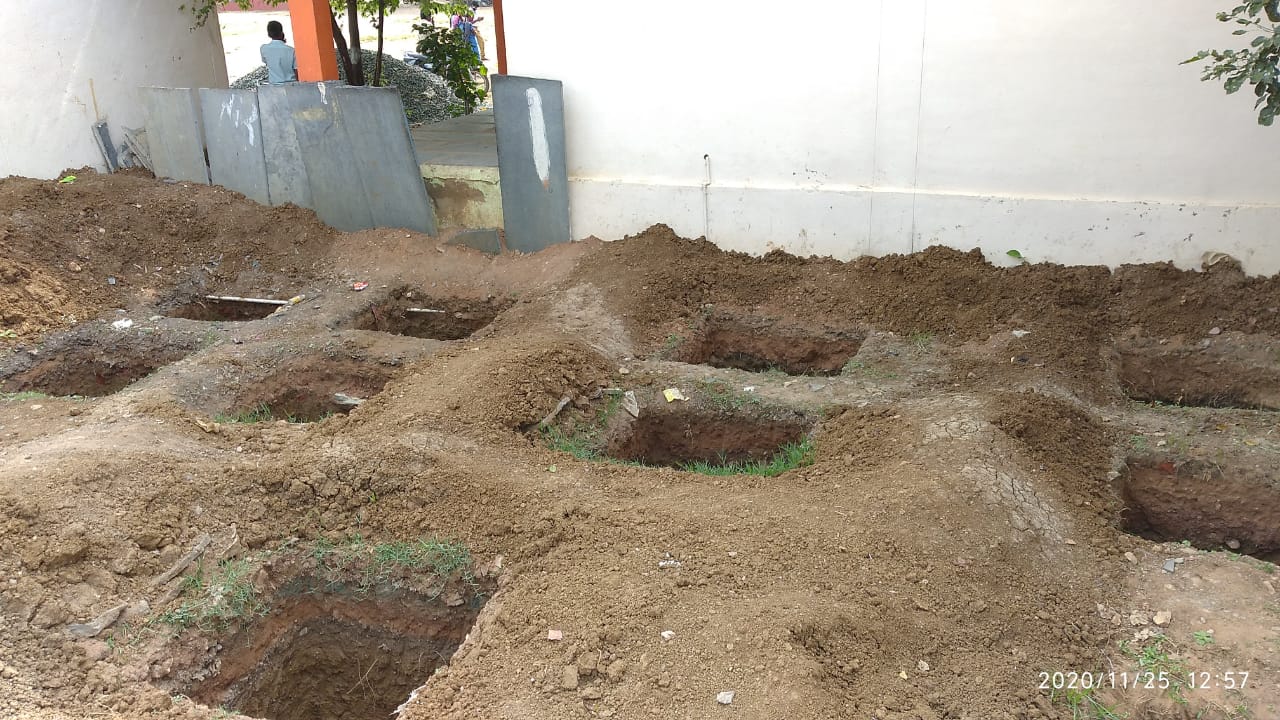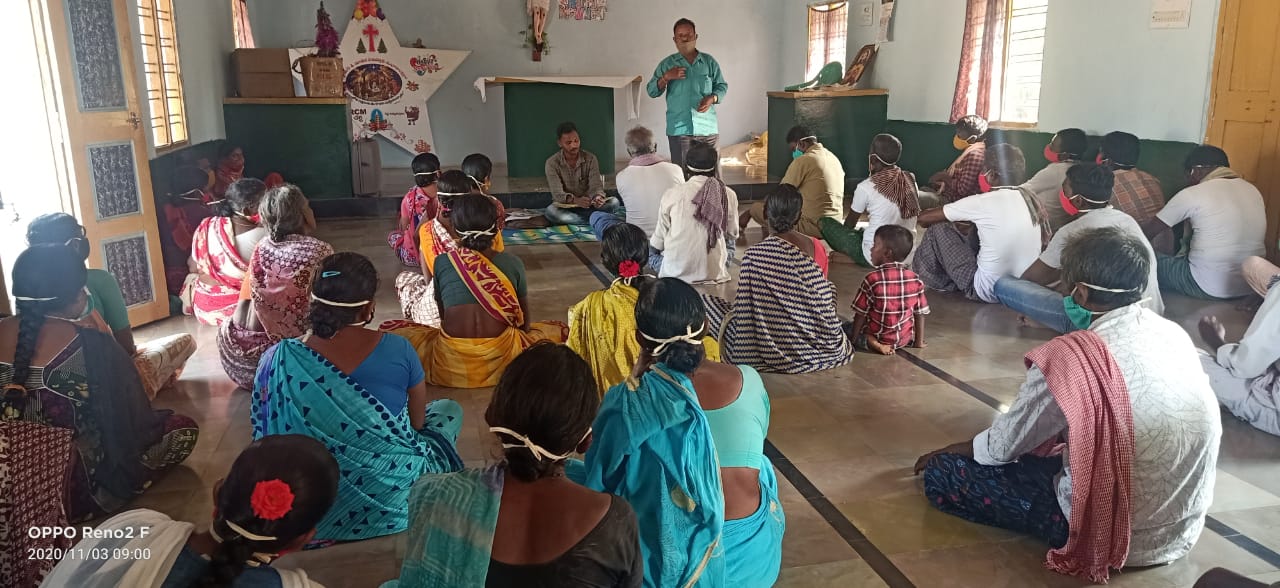Janalagudem, Balapalathippa, Pedda Gummadapuram, Yerrakunta, Bandi Atmakur, Venkatapuram, Y. Kothapalli and Santha Juturu villages of Kurnool District of Andhra Pradesh, India
In collaboration with

October 2020 – September 2021
We provided water supply infrastructure in four villages and five reverse osmosis plants in five schools, where we built six toilet complexes in three of them.
Objectives
- Achieve improvement in the health and living conditions of rural communities and schoolchildren and reduce women’s workload through regular access to water and adequate sanitation.
- Provide communities and schoolchildren with knowledge about the importance of water, sanitation and personal hygiene.
Beneficiaries
2,599 direct
1,570 children under 15 and 160 women
640 indirect
The labour force who is getting employment through this project and their families.
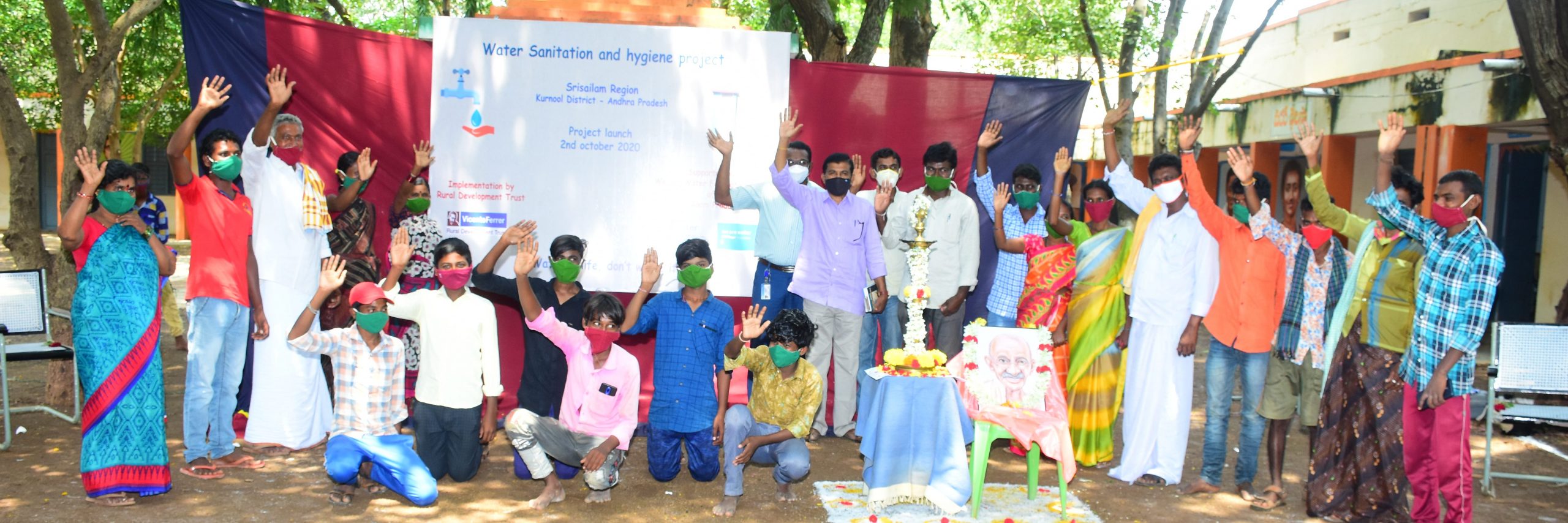
On the ground
The villages and their schools do not have enough drinking water, and women must walk up to three kilometres to get it. There are not enough bathrooms in schools, which causes open defecation.
There is a scarcity of water required for drinking and domestic purposes in the villages of Janalagudem, Balapalathippa, Pedda Gummadapuram and Yerrakunta, and women have to walk for a mile or two to fetch the water which is just sufficient for cooking and drinking. Since sufficient quantity of water is not available, the communities hardly take bath and wash their clothes which are causing them the health hazards.
Concerning the Government schools at Bandi Atmakur and Venkatapuram, there is no access for protected drinking water and the health conditions of the students are adversely affected. Though midday meal is provided to them every day by the Government of Andhra Pradesh, discordantly, the safe drinking water is not served. They have to drink locally available water which is mostly contaminated.
With regard to sanitation, there are no sufficient toilets for the students in the Government schools at Y.Kothapalli and Santha Juturu. Due to this situation, open defecation is taking place in the school premises which poses a threat to the health of students and a harm for the environment as well as humiliation especially for the girls.
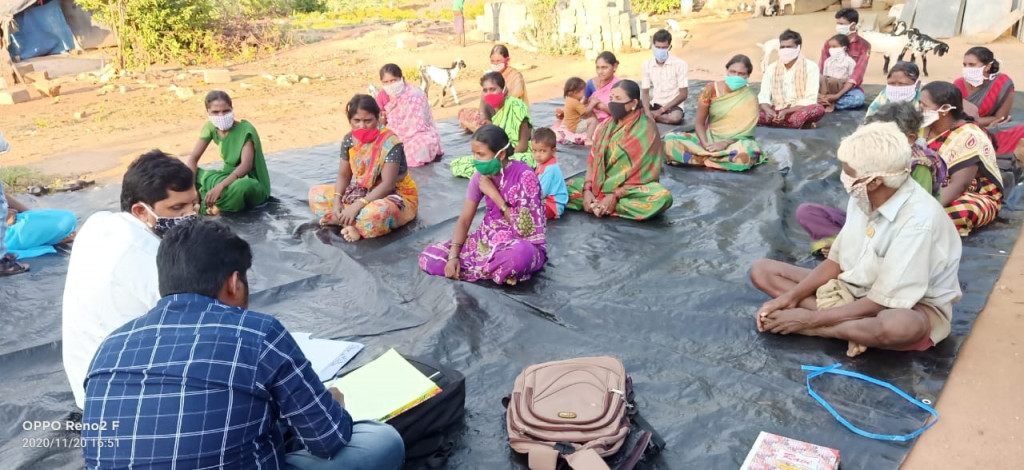
In detail
The proposed activities include the development of water supply infrastructures in four villages and setting up of five RO plants in five schools, as well as the construction of six toilet complexes in three schools. RDT implements this project without engaging any Civil Contractors, but by involving its Technical Team and gives utmost importance for the quality of work.
In addition, meetings, workshops and visits would be organized with the Community Development Committees (CDC) and student representatives to enable them to understand the importance of water and sanitation and their future maintenance.
Perspectives of sustainability
As RDT has been working in these villages for last ten years and will continue to work in future also, effective follow up and hand holding support will be given in the post project period.
While implementing the project, the people, student representatives and school authorities will be involved in every stage. Apart, capacity building workshops and meetings would be conducted to enhance the awareness. After completion of the project, it will be handed over to the Community Development Committees and School Authorities by taking a Memorandum of Understanding (MOU) incorporating all necessary clauses. Later, the Community Development Committees and School Authorities will take care of the maintenance with the help of local governments.


